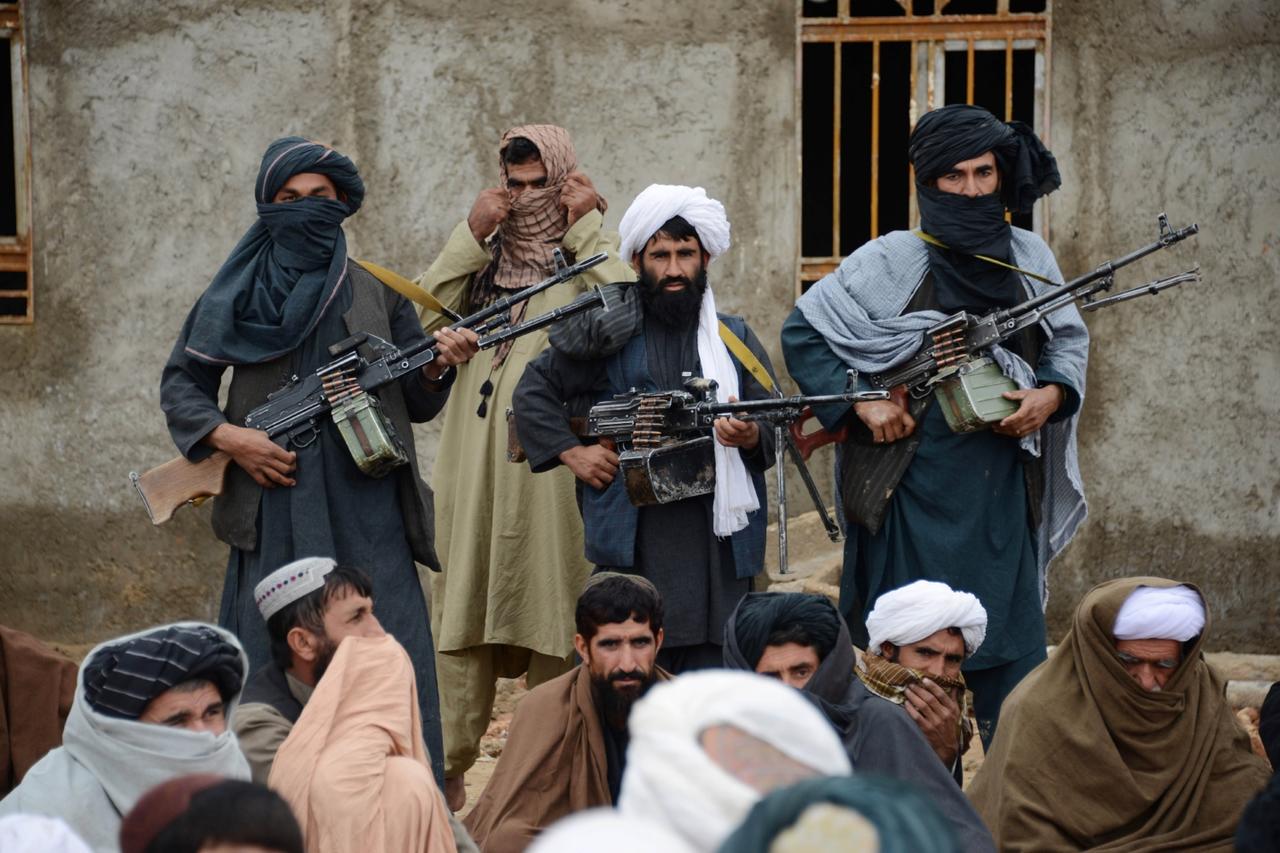Same Narrative, Rotating ‘Bad Guys’: Iran Paid Off Taliban Insurgents To Kill Americans
Tyler Durden
Mon, 08/17/2020 – 22:50
A little over a month ago we were told that Russian military intelligence was paying the Afghan Taliban to kill American troops. As many predicted, that “bombshell” – later admitted by some of the same sources that initially promoted it to be of “sketchy” intelligence origin – was very short-lived, grabbing headlines for a few days, only to be rapidly memory-holed akin to the fate of other Russiagate-related ‘anonymous sources say’ type stories.
In the foreign-policy-think of the D.C. blob, the cast of “rogue” actors constantly threatening US national security seamlessly rotates, entering in and out of familiar narratives when convenient, and now CNN is out with the latest: “US intelligence agencies assessed that Iran offered bounties to Taliban fighters for targeting American and coalition troops in Afghanistan, identifying payments linked to at least six attacks carried out by the militant group just last year alone, including a suicide bombing at a US air base in December, CNN has learned.”

Administration officials say it was US intelligence’s uncovering of the Iranian bounties plot which was decisive in convincing President Trump to assassinate IRGC Quds Force chief Qassem Soleimani on January 3rd.
The killing by drone of Soleimani came less than a month after a particularly devastating attack on Bagram Air Base which resulted in two civilian deaths, and injuries to four American personnel, among more than 60 others wounded. That attack was on December 11, 2019.
CNN writes:
“The name of the foreign government that made these payments remains classified but two sources familiar with the intelligence confirmed to CNN that it refers to Iran.”
So there it is — the largely debunked ‘Russian bounties’ story lives on apparently, in new form, fed to the public by anonymous intelligence sources. The CNN story even links the two threads together, suggesting that two major American enemies, Russia and the Islamic Republic, are now essentially handing out vast amounts of cash to mujahideen to kill Americans in Central Asia.
Specifically identified as Tehran’s alleged proxy mercenaries being paid off with Iranian money is the notorious Haqqani Network:
While US intelligence officials acknowledge that the Haqqani Network would not necessarily require payment in exchange for targeting American troops, the internal Pentagon document reviewed by CNN notes that the funding linked to the December 11 attack at Bagram “probably incentivizes future high-profile attacks on US and Coalition forces.”
But there are some immediate and obvious red flags to the story which should give serious pause and cause for skepticism.
For starters, the Haqqani Network and more broadly the Taliban considers Iran to be the worst among heretic and apostate regimes, given Iran is a Shia Republic at war with Sunni fundamentalism. The feelings are mutual, given Haqqani Network is basically the poster child for Sunni jihad and Takfirism which ultimately seeks to wipe out Shiism. Historically, the Taliban has been a near constant violent persecutor of Afghanistan’s own minority Shia community.
And as CNN perhaps begrudgingly pointed out of its own story: the radical Sunni Haqqani organization has never needed monetary incentive to attack American forces and their allies.
It’s crucial to remember that Sunni global jihad started with war against what early al-Qaeda propaganda speeches and documents dubbed the “near enemy” — that is, against secular regimes like Baathists and ‘heretics’ and ‘apostates’ like Shia, Alawites, and the popular “folk” Sufi movements of Mideast/North Africa which firebrand Saudi and Pakistani clerics have railed against for decades and even centuries (Haqqani has long found safe-haven in northwest Pakistan).
This fault line remains the key driver of proxy war in the region, meaning these two sides are still at war, which it should be remembered is largely what the Syria conflict is all about (the Sunni Saudi axis & Western allies fighting jihad against the so-called ‘Shia axis’), and the continuing US-led ‘maximum pressure’ campaign against Iran (the latest Israeli-UAE deal is largely focused on cooperation in countering Iran as well).
This is precisely why just after 9/11 very few authentic Middle East analysts with experience of the region believed the neocon lie that secular Baathist autocrat Saddam Hussein was in cahoots with Osama bin Laden and al-Qaeda to unleash WMD on the United States. Neocons have actually continued until now to push a narrative of “Iran was behind Sept. 11”.
Pence blames Iran for 9/11.
Bush blamed Iraq for 9/11.Maybe the GOP just really sucks at national security. And thinkin’. https://t.co/Ss3WPXl7TN
— Bryan Behar (@bryanbehar) January 5, 2020
Remember that in the days after Soleimani’s death Vice President Mike Pence actually tried to link the top Iranian commander to 9/11. This new ‘Iranian bounties’ story is cut from the same neocon cloth, and thus demands a high threshold of evidence presented publicly — not the mere usual anonymous intel sources and regurgitated paranoid headlines.
While it’s true that “anything is possible” especially when it comes to competing ‘dirty wars’ where proxies are used of state actors for plausible deniability, any narrative which claims the world’s vanguard of hardline Shia Islam is working with the global vanguard of international Sunni jihad (and throwing around lots of cash at that!) should again be met with a high degree of skepticism. It should be noted that indeed over the past few years there’s been a growing number of Western think tanks linking Iranian intelligence and Taliban factions born out of a pragmatic desire to create “managed instability” for occupying US forces in Afghanistan.
But just like with the prior “Saddam and bin Laden working together” story, or the “Iran behind 9/11 attacks” theory advanced by Bush-era think tank policy wonks, the public is very unlikely to ever get anything in the way of hard evidence concerning this new “Iran bounties” story.
via ZeroHedge News https://ift.tt/3az4zet Tyler Durden
